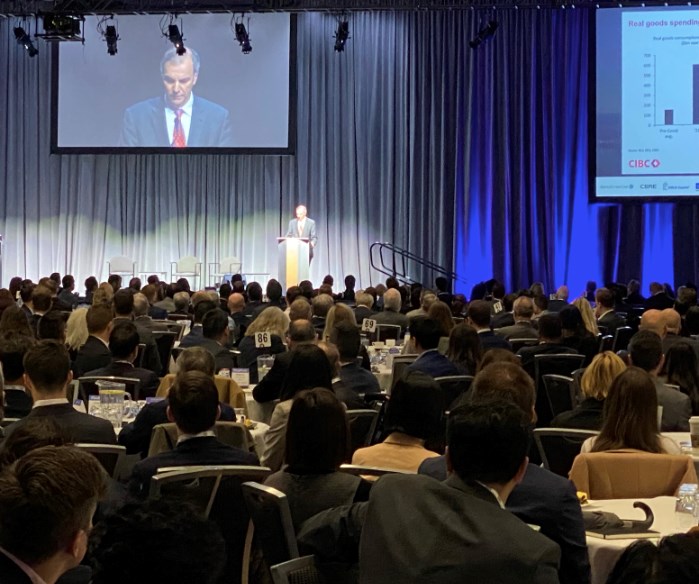Rising interest rates were a hot topic at the Vancouver Real Estate Forum on April 12, figuring into discussions of housing prices, affordability and investor returns.
“We’re seeing some impact right now, but I would suggest that it’s more tied to the investor buyer pool,” said Rowan Hicks, industrial sales director with Beedie.
Rising ownership costs have made many buyers think twice before jumping in, and rising financing costs are just one more variable to consider as they weigh deals. While real estate tends to hold value over the long-term, especially in constrained markets like Vancouver, financing costs eat into margins.
“Increasing interest rates are just further eroding returns,” Hicks said.
And those costs took a leap the following day as the Bank of Canada’s announced its biggest interest rate hike in 22 years. The bank’s overnight rate is now 1 per cent, double the rate set March 3, which itself doubled the 0.25 per cent rate in place since March 27, 2020.
While the jump is dramatic, the real risk isn’t the size but the speed of the increase.
“Your enemy is not higher interest rates. Your enemy is rapidly rising interest rates,” CIBC deputy chief economist and managing director Benjamin Tal told forum participants on Tuesday morning.
“Today the market is pricing in a situation in which the Federal Reserve [in the U.S.] and the Bank of Canada will rise to about 3.4 per cent,” he said. “That’s a very, very aggressive move, and 85 per cent to 90 per cent of this move will be in 2022 – the next eight months.”
Tal said he would prefer to see a short, sharp hike, followed by a pause to assess its impacts. An increase to 2.25 per cent, what he called the “neutral rate,” would likely be enough to rein in inflation and stabilize the economy.
“With the increased sensitivity to higher interest rates, that might be enough. You go beyond that and you risk a recession in 2023,” he said.
A recession would further complicate the recovery from the pandemic, but it’s a real risk, he said.
“Every economic recession over the past 40, 50 years was helped if not caused by a monetary policy error in which central bankers raised interest rates way too quickly,” he said. “We are facing that risk.”
Rising interest rates also create an opportunity for alternative lenders to enter the market, a phenomenon that’s frequently he concern of regulators.
“When interest rates go down, they get out of the market, when they go up and the market is tighter, they are in the market,” Tal said. “I expect the share of MICs and private lending to rise over the next two years.”
According to Statistics Canada’s survey of non-bank mortgage lenders, non-bank lenders other than credit unions held $112.1 billion worth of residential mortgages in the third quarter of 2021.



